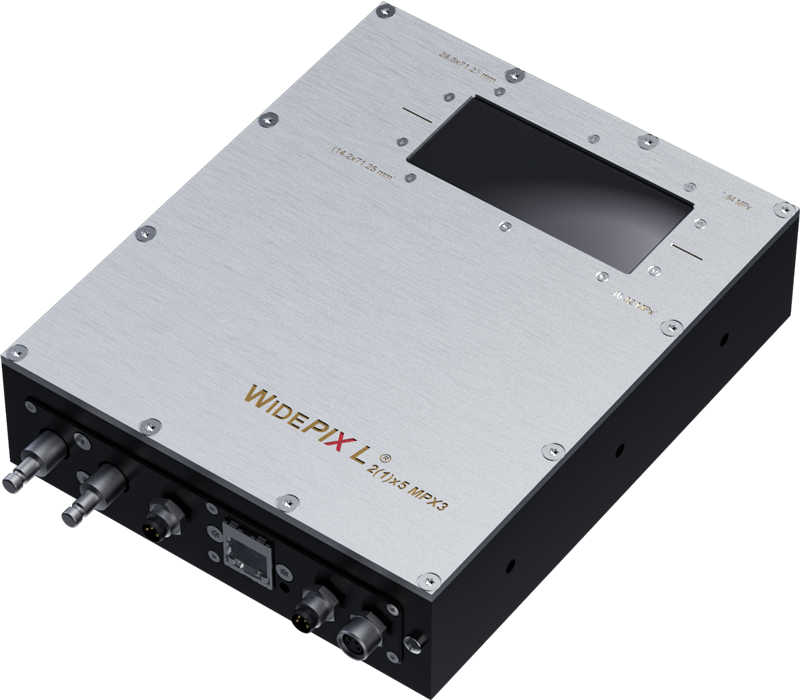A multi-chip industrial scanner and imaging detector with the ability to provide spectral material-sensitive “color radiography“. It suits CT scanners and supports a hardware-based Time-Delayed-Integration (TDI) mode. The camera resolution is 512 (256) x 1280 pixels, comprising a Medipix3 hybrid detector with a silicon or CdTe sensor.


